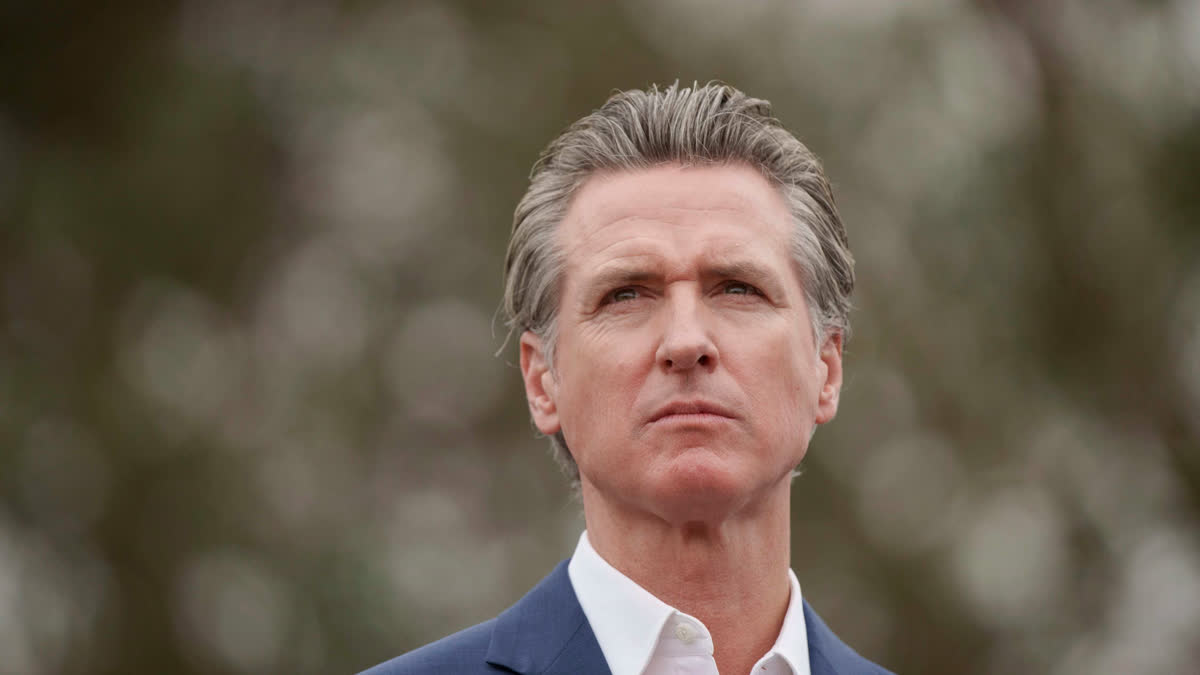Sacramento: California Gov. Gavin Newsom vetoed a landmark bill aimed at establishing first-in-the-nation safety measures for large artificial intelligence models Sunday.
The decision is a major blow to efforts attempting to rein in the homegrown industry that is rapidly evolving with little oversight. The bill would have established some of the first regulations on large-scale AI models in the nation and paved the way for AI safety regulations across the country, supporters said.
Earlier this month, the Democratic governor told an audience at Dreamforce, an annual conference hosted by software giant Salesforce, that California must lead in regulating AI in the face of federal inaction but that the proposal "can have a chilling effect on the industry."
The proposal, which drew fierce opposition from startups, tech giants and several Democratic House members, could have hurt the homegrown industry by establishing rigid requirements, Newsom said.
"While well-intentioned, SB 1047 does not take into account whether an AI system is deployed in high-risk environments, involves critical decision-making or the use of sensitive data," Newsom said in a statement. "Instead, the bill applies stringent standards to even the most basic functions — so long as a large system deploys it. I do not believe this is the best approach to protecting the public from real threats posed by the technology."
Newsom on Sunday instead announced that the state will partner with several industry experts, including AI pioneer Fei-Fei Li, to develop guardrails around powerful AI models. Li opposed the AI safety proposal.
The measure, aimed at reducing potential risks created by AI, would have required companies to test their models and publicly disclose their safety protocols to prevent the models from being manipulated to, for example, wipe out the state's electric grid or help build chemical weapons. Experts say those scenarios could be possible in the future as the industry continues to rapidly advance. It also would have provided whistleblower protections to workers.
The bill's author, Democratic state Sen. Scott Weiner, called the veto "a setback for everyone who believes in oversight of massive corporations that are making critical decisions that affect the safety and the welfare of the public and the future of the planet."
"The companies developing advanced AI systems acknowledge that the risks these models present to the public are real and rapidly increasing. While the large AI labs have made admirable commitments to monitor and mitigate these risks, the truth is that voluntary commitments from industry are not enforceable and rarely work out well for the public," Wiener said in a statement Sunday afternoon.
Wiener said the debate around the bill has dramatically advanced the issue of AI safety, and that he would continue pressing that point.
The legislation is among a host of bills passed by the Legislature this year to regulate AI, fight deepfakes and protect workers. State lawmakers said California must take actions this year, citing hard lessons they learned from failing to rein in social media companies when they might have had a chance.
Proponents of the measure, including Elon Musk and Anthropic, said the proposal could have injected some levels of transparency and accountability around large-scale AI models, as developers and experts say they still don't have a full understanding of how AI models behave and why.
